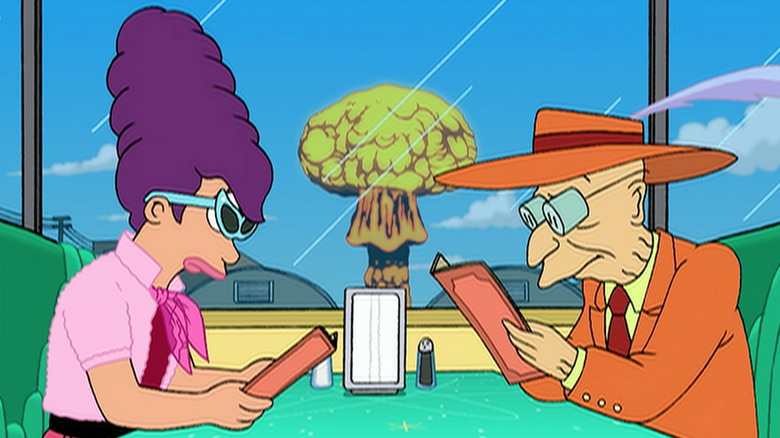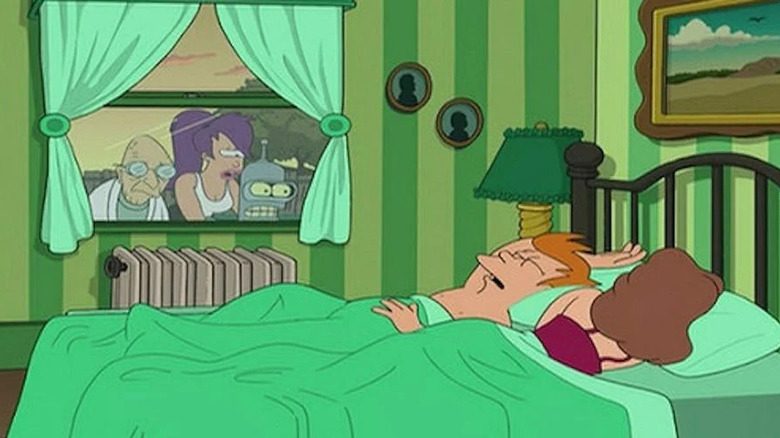Breaking Its Own Sci-Fi Rules Paid Off Big For Futurama
After a ridiculously successful decade of writing and creating "The Simpsons," creator Matt Groening and "The Simpsons" writer David X. Cohen approached Fox with a new adult animated series, the sci-fi comedy "Futurama." It was apparent pretty early on that Fox wasn't completely invested in the series, but despite decisions like dumping the show on Sunday nights post-football games and not giving it nearly the same level of marketing as something like "The Simpsons," the lovable weirdos of Planet Express managed to stay alive for four seasons on Fox. Upon cancellation, fans consistently cried out for more "Futurama," inspiring Comedy Central to produce four direct-to-DVD movies (which were later re-edited into a 16-episode season 5). The network picked up the series for two more seasons, ending in 2013, and now, Hulu is reviving the series after nearly a decade off the air.
"Futurama" notably hired a staff of writers with advanced degrees, ensuring that the STEM elements and jokes were rooted in authenticity. David X. Cohen has a master's degree in theoretical computer science from Berkeley, writer/producer Ken Keeler has a PhD in applied math, writer Stewart Burns has a master's in math, and counts among the writers' room an additional PhD in chemistry, master's in philosophy, and master's in computer science. It was the emphasis in legitimate sciences that established a core rule in "Futurama" — that the show would not dabble with time travel. This worked for some time, but as the saying goes, some rules are meant to be broken.
'Roswell That Ends Well'
In an interview with the The A.V. Club, David X. Cohen shared that in the early years of "Futurama," there was a firm "no time travel, no matter what" rule, knowing that the show's sci-fi-loving fans would nitpick the science behind it. It wasn't until Season 3, Episode 19 ("Roswell That Ends Well") that the show finally sent the characters across space and time. The crew travels back in time, arriving in Roswell, New Mexico and making the crew of Planet Express the aliens that supposedly landed there in 1947.
We finally caved in. We said, "It sounds fun enough to write—and we need an idea today." Then it ended up winning the Emmy Award, and pretty much derailed us from our "no time travel" rule. We've done several since then, most of which are among our best and most popular episodes.
In terms of "Futurama" lore, especially when regarding protagonist Philip J. Fry, the impact of the crew's time travels has become an integral part of the show's canon. Fry encounters his grandmother Mildred in the episode, and goes where "Back To The Future" didn't dare — he has sex with her. Granted, he had convinced himself she wasn't his grandmother, but Fry isn't known for being the smartest guy. Fry unintentionally became his own grandfather, which gave him a genetic abnormality that no one else in existence has — a lack of the delta brainwave. That renders him immune to the villainous Brainspawn (and telepathy in general) which allows him to become one of the saviors of the galaxy. Fry as the hero of the universe is a vital aspect of "Futurama," and wouldn't have been possible had the show's creators not broken their own rule.

